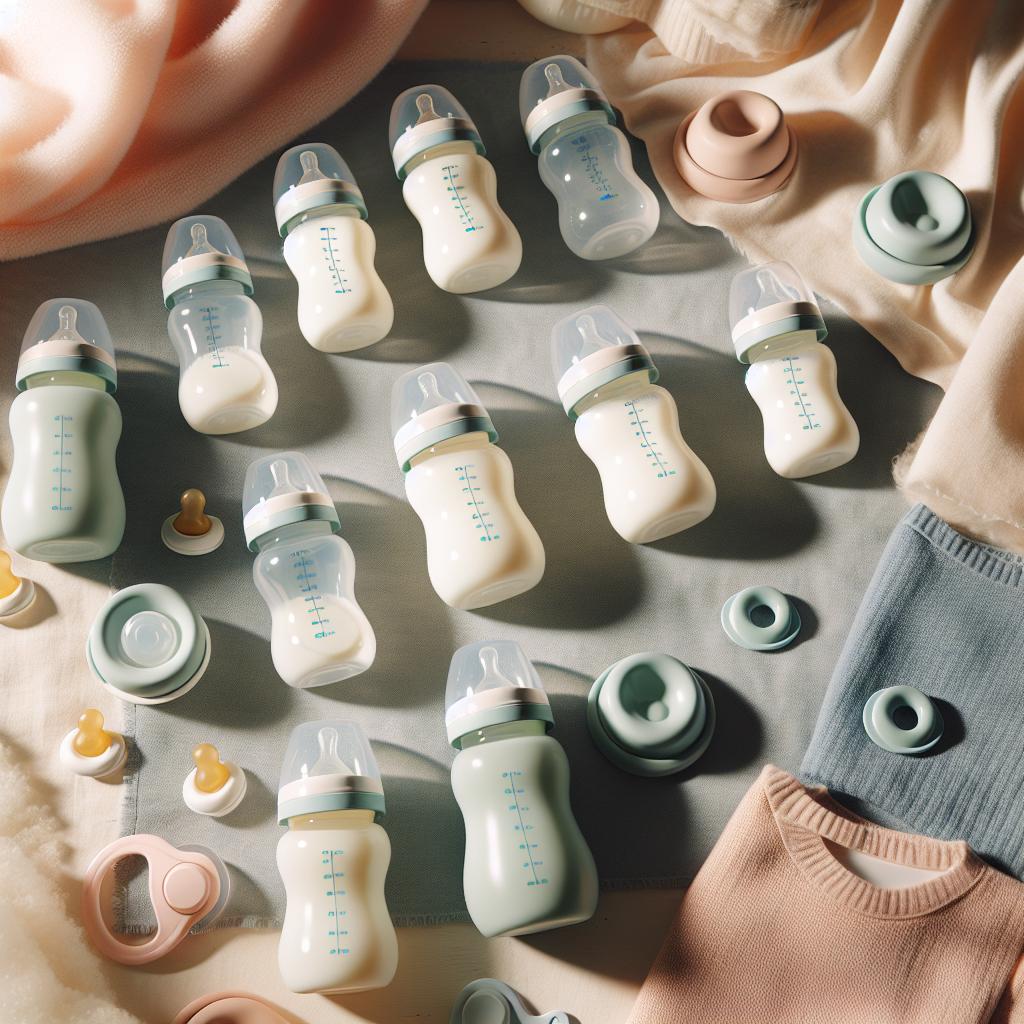Understanding the Baby’s Bottle Rejection
Does your baby hates bottle? Is your little bundle of joy displaying a strong bottle dislike? Identifying the main reasons for bottle rejection is the first step in addressing this common yet frustrating problem. Here, we’ll take a closer look at why this may occur, and share practical solutions to help you and your baby embrace bottle feeding with ease and joy.
Why Your Baby Hates the Bottle
There’s nothing to be alarmed about if your baby is showing signs of bottle dislike. It’s a common issue faced by many parents, and understanding the possible reasons can be a big help. Here are a few:
- Preference for breastfeeding: Breastfeeding provides not just nourishment but also a deep sense of comfort and bonding. A baby may refuse the bottle because it’s simply not the same as the mother’s breast.
- Wrong bottle or nipple type: The wrong bottle or nipple can influence a baby’s acceptance. If the baby finds it hard to latch on or if the milk flow is too fast or slow, they may reject the bottle.
- Unfamiliar taste or smell: If you’re transitioning from breast to bottle feeding, your baby might reject the unfamiliar scent or taste of formula, if that’s what you’re using.
If you want to dive deeper into the transition from breast to bottle, check out this helpful guide on Expert Tips for a Seamless Breast to Bottle Transition.
Overcoming Bottle Dislike: Practical Solutions
Once you understand why your baby might be refusing the bottle, it becomes easier to come up with viable solutions. Below are some tried and tested strategies:
- Patience and persistence: It may take some time for your baby to accept the bottle. Try not to rush them.
- Experiment with different bottles and nipples: Every baby is unique. What works for one may not work for another. Don’t hesitate to try different types of bottles and nipples until you find the one your baby prefers.
- Mix breast milk and formula: If you’re transitioning to formula-feeding, consider mixing a bit of breast milk with the formula. This way, your baby gets used to the new taste gradually.
For more tips on making bottle-feeding a fuss-free experience, visit Insider Tips for a Fuss-Free Bottle-Feeding Experience.
Embrace Bottle Feeding with Confidence and Joy
The transition from breast to bottle-feeding can be a challenge, both for you and your little one. But remember, you’re not alone in this journey. Many parents have faced and overcome these challenges, and so can you. For some inspiration, check out this post on why choosing to formula feed was the best decision made by a new mom on Medium.
Additional Factors Influencing Bottle Rejection
As well as the aforementioned, multiple external variables might contribute to bottle rejection. Below are some additional reasons why your baby might be rejecting the bottle:
- Feeding position: The way a baby is held during feeding can impact bottle acceptance. If the position doesn’t resemble breastfeeding, your baby might feel uncomfortable and refuse the bottle.
- Temperature: The formula’s temperature may be too cold or hot for your baby’s liking, resulting in rejection.
- Feeding time: Your baby might refuse the bottle when he/she is not yet hungry or already too tired. Always make sure to feed your baby when he/she naturally shows signs of hunger.
Here’s a relevant post on What to Do When Your Breastfed Baby Refuses a Bottle to provide more understanding on this topic.
Insights from Parents and Experts
Parents and experts from all corners of the globe have accumulated a wealth of insights into the challenge of bottle rejection. Here, we share their experiences:
Baby Development Special Insights
Infant development specialists emphasize that every stage of a baby’s growth comes with unique challenges. Your child’s development can be greatly influenced by their feeding habits during early childhood. Dealing with bottle refusal is just one of the many hurdles parents need to tackle.
A Mother’s Perspective
Parenting is a complex task that can sometimes leave one feeling overwhelmed. It’s important to remain persistent, especially when you’re dealing with feeding struggles. A mother shares her journey of finding joy during challenging times, including her baby’s bottle rejection.
Bottle Feeding: A Community Effort
Looking at a larger perspective, it’s important to consider the African proverb, “It takes a village to raise a child.” Bottle feeding may seem like a small issue compared to other hurdles that may come your way, but it’s crucial to remember that each challenge faced by parents is meaningful in the growth of the child. Through constant trial and error, successes and failures, we learn, adapt and grow alongside our children.
The Power of Positivity and Emotional Support
Finally, amidst all these tips and advice, one essential aspect to consider in every situation is positivity. Sometimes, your baby can sense your stress or frustration, which may lead to their discomfort. A positive attitude can go a long way in helping to resolve bottle rejection. Stay patient, keep giving your best, and remember to celebrate every small win. For inspiration, have a look at this beautiful post on positivity.






